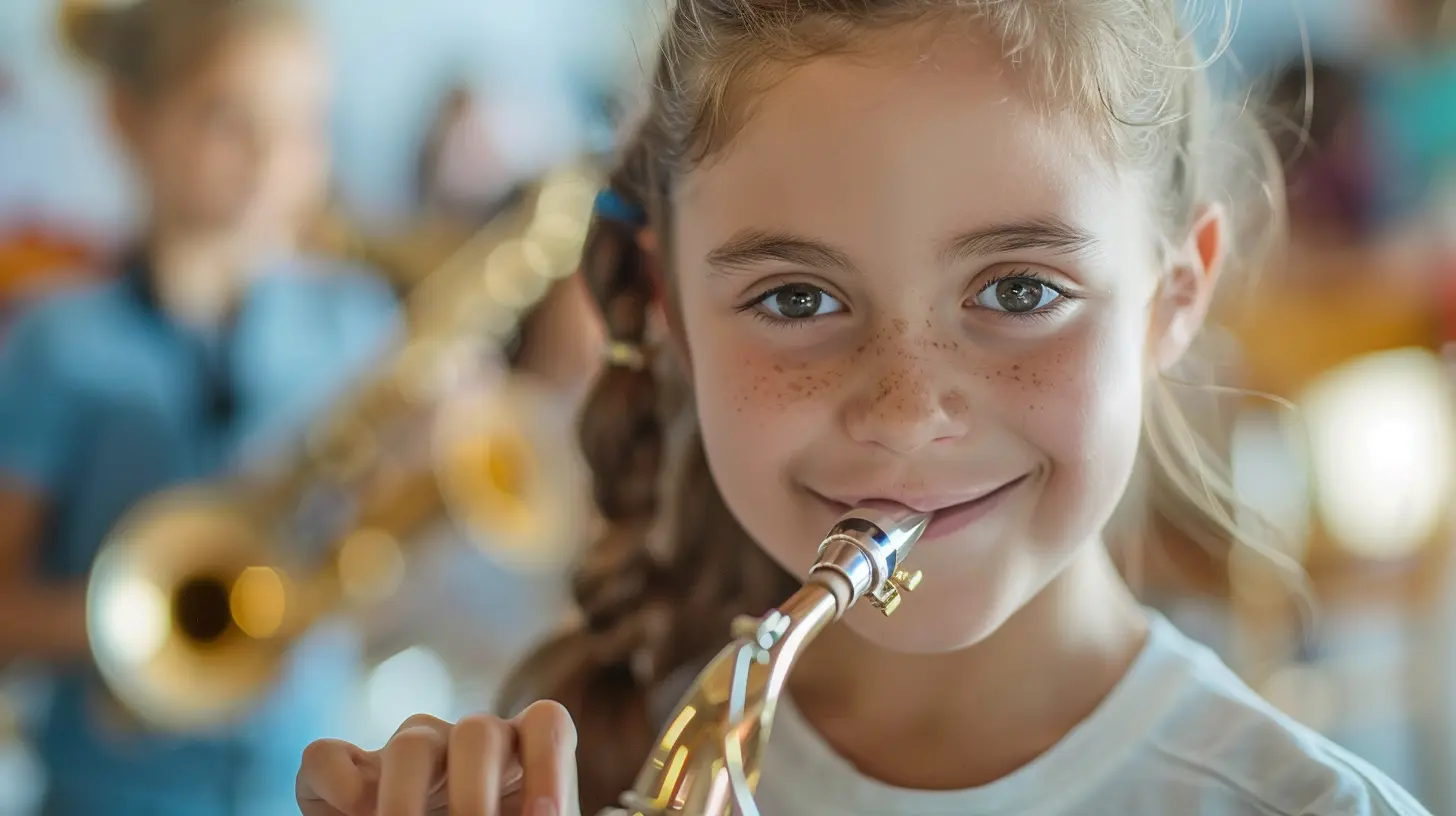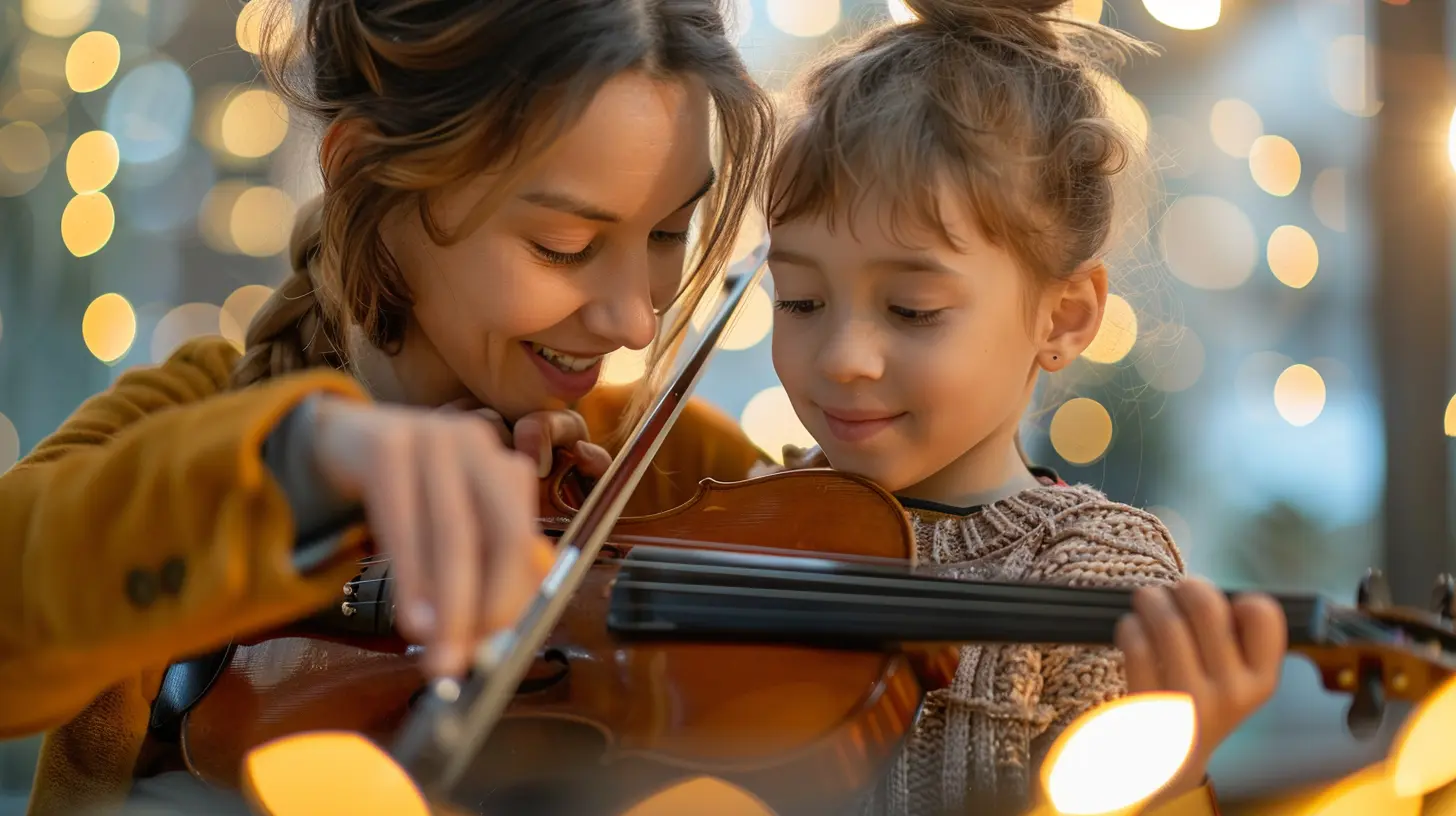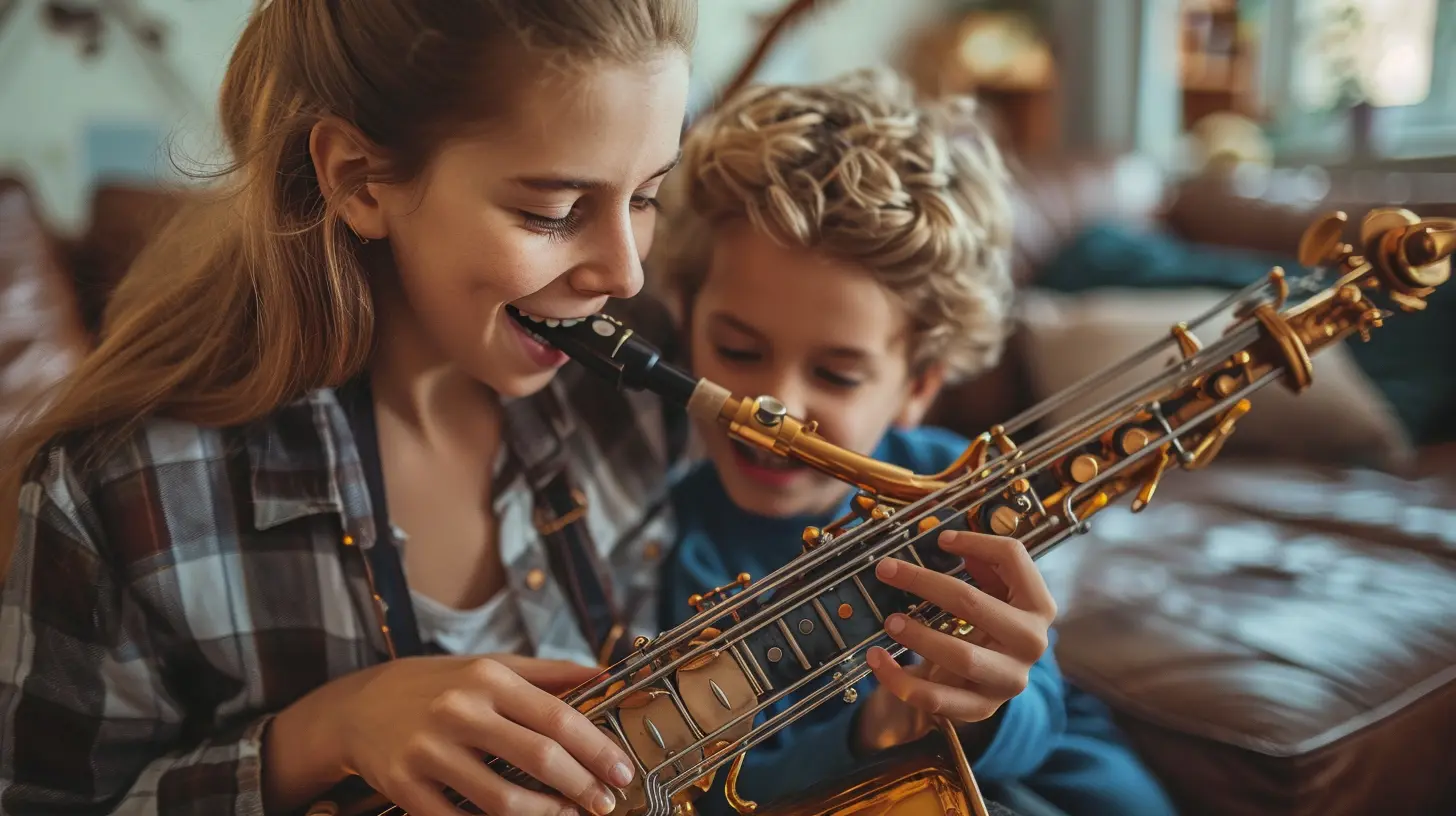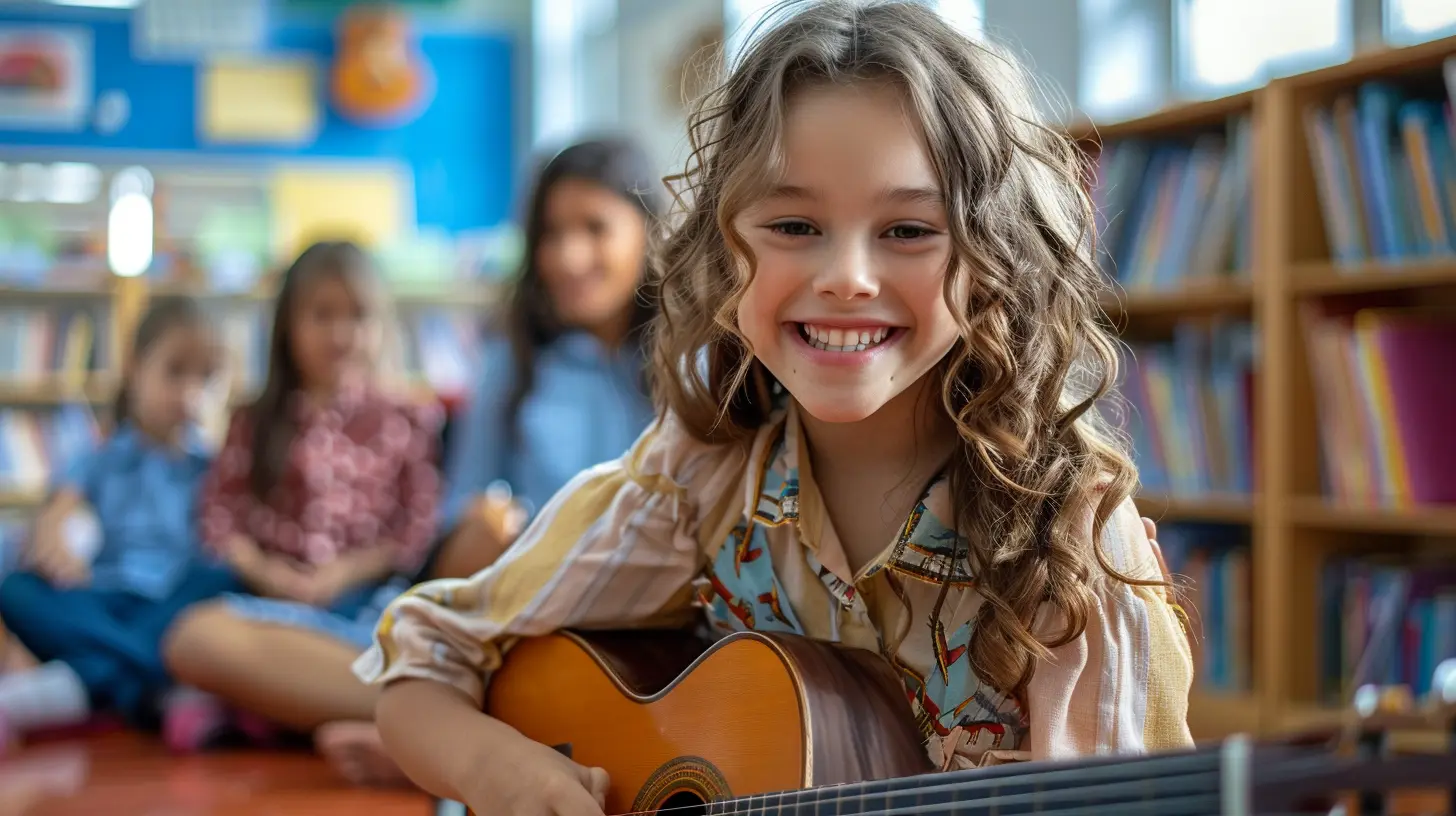The Benefits of Music Lessons After School
7 July 2025
After-school activities are an essential part of childhood. Whether it’s sports, art, or dance, these hobbies help shape a child’s development. But have you ever considered music lessons? Learning to play an instrument after school is more than just a fun pastime—it’s a game-changer for kids in so many ways!
From boosting brain power to improving social skills, music lessons offer a world of benefits that go far beyond just playing notes. Let’s dive into why signing up your child for after-school music lessons might be one of the best decisions you ever make.

1. Boosts Brain Development
Music isn’t just about melodies and rhythms; it’s actually a full-on brain workout! Studies have shown that children who take music lessons tend to perform better academically. Why? Because learning an instrument helps develop cognitive skills like memory, problem-solving, and concentration.Think about it: when a child learns to play piano or guitar, they’re reading sheet music, coordinating hand movements, and listening carefully—all at the same time. It’s like a mental gym session for their brain!
Music and Math Go Hand in Hand
Did you know that playing an instrument can improve math skills? Music involves counting beats, recognizing patterns, and understanding rhythms, all of which enhance a child’s ability to grasp mathematical concepts. So if your child struggles with numbers, a little music could be just what they need!
2. Improves Discipline and Patience
Let’s be honest: learning an instrument isn’t easy. It takes time, effort, and a whole lot of patience. But that’s exactly why music lessons are so valuable.Kids quickly learn that they can’t master a song overnight. They have to practice regularly, follow instructions, and stay committed. This builds discipline and teaches them that hard work pays off—an essential life skill they’ll carry into adulthood.
And when they finally nail that tricky piece? The sense of accomplishment is priceless!

3. Enhances Social Skills
Music lessons aren't just about playing solo. Many involve group lessons, school bands, or orchestras, where kids interact, collaborate, and learn teamwork.Better Communication and Teamwork
Playing in a group requires listening to others, adjusting their playing to match the rhythm, and working as a team. These are essential social skills that will help them build friendships and interact better with others in everyday life.Plus, being part of a music group gives children a sense of belonging—something that can boost their confidence and self-esteem.

4. Reduces Stress and Boosts Emotional Well-Being
After a long day of school and homework, kids need a way to unwind. And what better way than through music?Music has been shown to reduce stress, lower anxiety, and improve mood. Whether it’s playing a soothing tune on the piano or rocking out on the drums, music provides an emotional outlet for kids to express themselves.
Music also teaches kids how to cope with frustration. When they struggle to master a piece, they learn to stay calm, push through challenges, and enjoy the process rather than just the result.
5. Increases Self-Confidence
There’s something truly magical about seeing a child beam with pride after performing for the first time. Music lessons give kids constant opportunities to improve, showcase their progress, and receive positive feedback.Whether it’s a small recital or a school performance, standing in front of an audience and playing an instrument teaches kids confidence. They learn to handle nerves, trust their abilities, and take pride in their hard work.
And let’s be real—who doesn’t love the attention that comes with being able to play an instrument? It’s a guaranteed confidence booster!
6. Encourages Creativity and Self-Expression
Music is an art form, and like any art, it allows kids to be creative. Whether they’re writing their own songs, improvising, or adding their unique flair to a piece, music encourages free expression.Many kids struggle to express their feelings verbally, but through music, they can channel emotions in a healthy and constructive way. That’s why so many young musicians develop a deep personal connection with their instruments—it becomes part of their identity.
7. Teaches Responsibility
Owning an instrument is a big responsibility. Kids have to take care of it, tune it, and practice regularly. This teaches them accountability and the importance of taking care of their belongings.Music lessons also introduce the concept of commitment. Unlike some hobbies that kids can quit easily, learning an instrument requires dedication. They learn to set goals, manage their time, and stick to a routine—all critical skills for future success.
8. Helps Develop Fine Motor Skills
Playing an instrument requires precise finger movements, hand-eye coordination, and dexterity. This is especially beneficial for younger kids as it strengthens their motor skills and improves coordination.For example, playing the piano involves using both hands independently, while playing the violin requires precise bow movements. These small but complex actions enhance a child’s physical coordination, which can even translate into improved handwriting and better agility in other activities.
9. Offers a Break from Screen Time
In today’s digital world, kids spend way too much time on screens. Between video games, tablets, and TV, it's easy for them to become glued to a screen for hours. Music lessons provide a productive and engaging alternative that keeps them mentally and physically active.Instead of endless scrolling, they can spend time creating something meaningful. And who knows? They just might develop a lifelong passion!
10. Creates Lifelong Skills and Opportunities
Unlike some childhood hobbies that fade away over time, music is a skill that can last a lifetime. Even if they don’t pursue it professionally, they’ll always have the ability to play an instrument for fun or relaxation.Plus, music can open doors! From college scholarships to joining a local band, having musical talent can lead to exciting opportunities down the road.
How to Get Started with Music Lessons?
Convinced that music lessons are a great idea? Here are some quick tips to get started:- Choose the Right Instrument – Let your child explore different instruments to see what interests them the most.
- Find a Good Teacher – Whether it’s a private tutor, school program, or online lessons, having a skilled and supportive teacher makes all the difference.
- Make Practice Fun – Encourage daily practice but keep it enjoyable. Reward progress and celebrate small achievements.
- Be Supportive – Learning music takes time, so be patient and encourage your child through the ups and downs.
Final Thoughts
Music lessons after school offer so much more than just learning an instrument. They shape kids into more disciplined, confident, and well-rounded individuals. From boosting brain development to reducing stress and enhancing creativity, the benefits are endless.So if you’re looking for an after-school activity that nurtures your child’s growth while being fun and fulfilling, music lessons might just be the perfect choice!
all images in this post were generated using AI tools
Category:
After School ActivitiesAuthor:

Tara Henson
Discussion
rate this article
1 comments
Marie Barlow
Absolutely loved this article! 🎶 Music lessons not only boost creativity but also enhance focus and discipline in kids. It’s wonderful to see how much joy and confidence music can bring to their lives! Can't wait to enroll my little ones! 🌟
July 14, 2025 at 2:38 AM

Tara Henson
Thank you so much for your kind words! I'm glad the article resonated with you. Music truly has a transformative impact on kids! 🌟🎶


